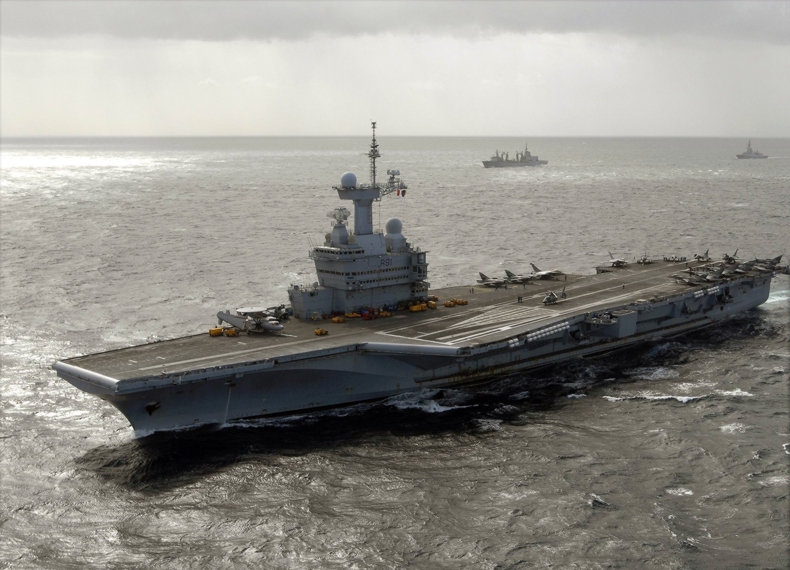Hmmm. What could they call it? The Charlemagne? The Louis XIV? The Napoleon? The Friedrich der Große? The Wilhelm II? The Maréchal Pétain? The possibilities are endless…
France and Germany should band together and build a European aircraft carrier to boost the continent’s defense capabilities, according to Annegret Kramp-Karrenbauer, a confidante and possible successor to German Chancellor Angela Merkel.
Kramp-Karrenbauer, who leads the Christian Democratic Union since Merkel stepped down from that job last fall, pitched the idea in a Sunday commentary in the Germany newspaper Die Welt. The article was meant as a response to French President Emmanuel Macron’s plea days earlier toward something of a European renaissance ahead of the European Parliament’s elections in May.
“Germany and France already are working on a future European combat aircraft, where other nations are invited to join,” Kramp-Karrenbauer wrote, referring to the Future Combat Air System, or FCAS. “As a next step, we could start the symbolic project of building an aircraft carrier to give shape to the role of the European Union as a global force for security and peace.”
On the one hand, the French navy (the Marine Nationale) does have current experience operating an aircraft carrier, the Charles de Gaulle, although a second carrier was cancelled due to budget constraints. The German navy, however, has been reported to be in dire straits both financially and operationally. I suspect it would take even longer than the time elapsed to negotiate, design, and build a carrier to get the German navy sufficiently well-staffed and trained to bear their part in the shared operations.
It has taken the Royal Navy several years of preparation — including much-needed allied assistance with crew members serving on US Navy carriers — to ensure that the latest British carrier, HMS Queen Elizabeth could be properly manned for working-up toward a first deployment next year. Aircraft carriers are not just bigger ships: they’re a unique type of ship and you don’t just build one (setting aside the highly specialized design requirements and finding a shipyard big enough) and then crew it with matelots from your existing fleet of frigates, corvettes, and patrol boats. I don’t think it’s expected that the Royal Navy will be able to operate both Queen Elizabeth and HMS Prince of Wales simultaneously except for brief operational surges or full-scale war.
Of course, I’m far from the only doubter about this idea:
“The ‘European aircraft carrier’ is such a ridiculous and meaningless proposal (don’t get me wrong, I can imagine some French politicians having the same ‘idea’) that it does not even deserve a rebuke,” Bruno Tertrais, deputy director at the Paris-based Fondation pour la Recherce Strategique, wrote in an email to Defense News.
Ulrike Franke, a London-based defense analyst with the European Council on Foreign Relations, struck a similar chord in a Monday post on Twitter: “I am all for strengthening European capabilities, yes please. … But this appears … not particularly well thought through…?”
And Wolfgang Ischinger, former German ambassador in Washington and doyen of the Munich Security Conference, suggested Germany wouldn’t really know what to do with such a ship.
“An aircraft carrier is an instrument of geopolitical/military power projection,” he wrote on Twitter. “A precondition for the employment would be a common strategy and decision-making process — Germany is light years away from that!”
That appears to be the crux of Germany’s defense debate: The Bundeswehr is so caught up in its disrepair that there is no space for formulating the kind of national strategy against which new capabilities could be evaluated. The lack of such a reference point gives all new military technology — from drones to artificial intelligence to naval power projection — the whiff of being far-fetched from the start, rightfully or not.




